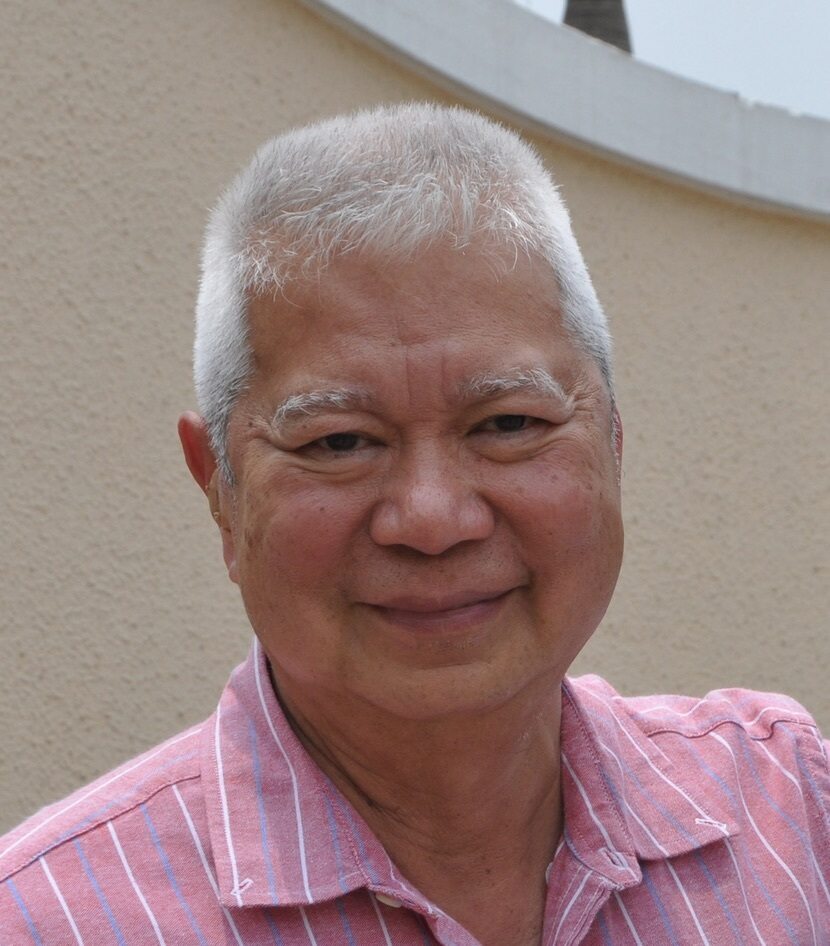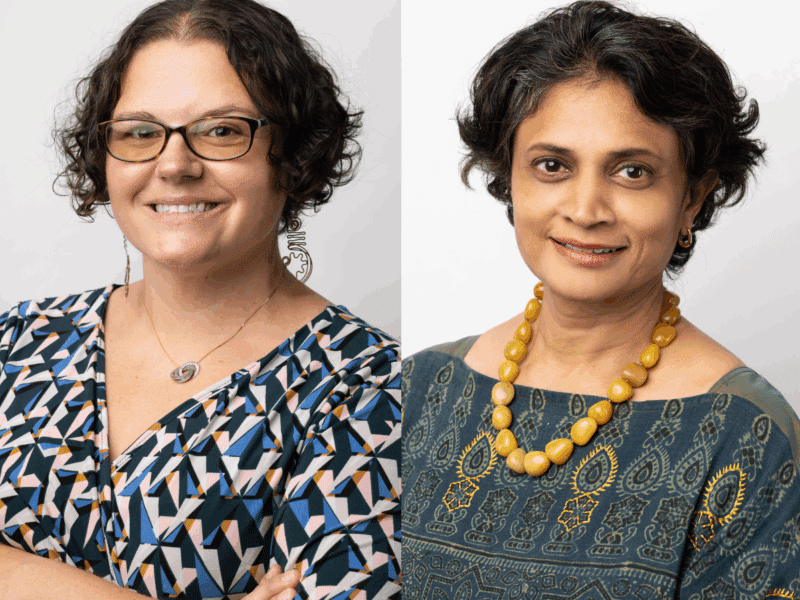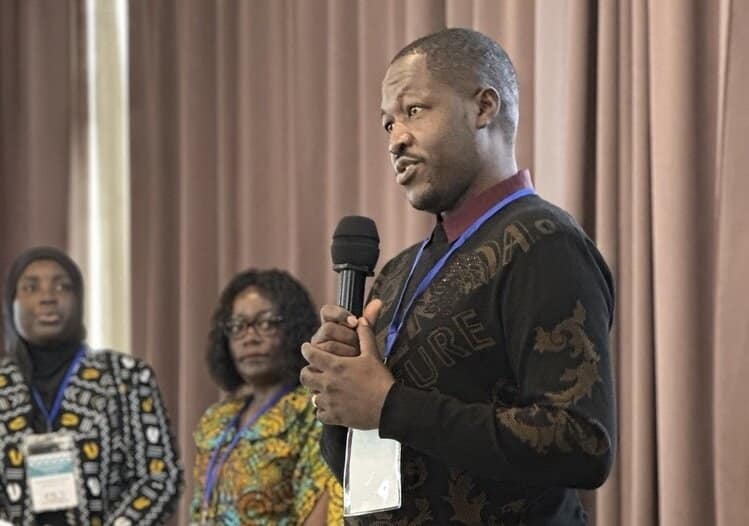Benjamin Villasol Lozare, PhD, a treasured teacher and the heart and soul of the Johns Hopkins Center for Communication Programs’ internationally known Leadership in Strategic Communication Workshop for more than 30 years, died Thursday after a battle with blood cancer. He was 76.
A memorial for Dr. Lozare will be held on Feb. 15 from 1 p.m. to 3 p.m. at Harry H. Witzke’s Family Funeral Home in Ellicott City, Maryland. The memorial will be live-streamed and a recording will be accessible shortly after.
Dr. Lozare called himself a “nomad,” traveling to more than 100 countries through the years. His roots, though, were deeply embedded in his native Philippines, where he was part of an organization that helped spark the revolution to end the regime of the dictator, Ferdinand Marcos, in late 1980s.
His career spanned decades from being the youngest dean ever at the University of the Philippines in Manila to heading capacity strengthening efforts at CCP, the centerpiece of which is the strategic communication workshop, a transformational three-week seminar that has trained more than 5,000 practitioners around the world in social and behavior change. Not only did Dr. Lozare train legions of people who would become everything from community change-makers to leaders in government, global development and communication, he also taught and inspired a generation of people at CCP to be trainers themselves and carry on his legacy.
He was also a family man, devoted to his wife of 50 years, Cristina, his two children and three grandchildren, with whom he FaceTimed every night. They were all by his side when he died at Johns Hopkins Hospital in Baltimore.
“Ben really cared about people,” says CCP’s Arzum Ciloglu, who after two decades learning at Dr. Lozare’s side now directs the workshop. “And as trainers, what he instilled in us was that everyone comes with their experiences and you need to understand that it’s not just the person sitting in front of you, but it’s everything that they bring with them, and to understand and train the whole person, rather than just the professional person. So, his training has always had this personal touch.”
Uttara Bharath Kumar, who heads CCP’s India programs and other capacity strengthening initiatives, met Dr. Lozare in 1997 when she first joined CCP’s training division.
“His intelligence, kindness, thoughtfulness, curiosity, humility, and creativity were apparent when you met him,” she says. “He could simplify and make the most complex concepts easy to understand and remember – a teacher to the core. Most impressive of all was his ability to make deep, human connection. He had a magical quality that made every person who met him, remember him and something good he had sparked in them.”
Students often asked: “How big does our vision have to be?” Bharath Kumar says he would always ask in return, “How deeply do you care?”
“He cared deeply about fairness, justice, and the human condition,” she says. “From his humble beginnings in the Philippines to the instrumental role he played in the return of democracy to his country, he walked the walk. The lines between life and learnings were blurred for him. Each fed into the other. He often talked about the concept of integrity. What is on the inside is the same as what is on the outside. He made each one of us want to be the most authentic versions of ourselves too.”
Ciloglu recalls that Dr. Lozare would make sure to spend time with every student at the annual leadership workshop individually, getting to know something about them not only as practitioners and communicators, but just as importantly as people. At the end of the three-week sessions, he would handwrite a personal letter to each participant.
“In the letters, he would ask each person about something they were thinking about or struggling with, hoping to help them somehow with whatever issue they were dealing with,” she says.
Andrea Brown Anschel, who co-facilitated the leadership workshop alongside Dr. Lozare and now does so with Ciloglu, is herself is an alumna of the course – and she still treasures the letter that he wrote to her.
“Ben was just this fountain of wisdom and experience,” she says. “Often times, participants had this level of awe of him that you couldn’t put your finger on. Because of this, I think people opened themselves up a little more to whatever he was sharing and were more open to learning. And that was intentional. Everything he did was intentional.”
Simply put, he helped people to see the best in themselves.
He was known for his “Ben-isms,” thought-provoking sayings he used to inspire his students and colleagues, including “to change others we must first change ourselves,” “leadership cannot be taught, but can be learned,” and “don’t just think out of the box, throw the box away.”
A lifelong learner, colleagues remember Dr. Lozare as always carrying a stack of hardcover books, constantly engaging with new concepts, and collecting anecdotes from the most unexpected places that would later show up in his teaching. He was also an amateur magician, a Washington Commanders fan, and he played cello, even up until his last days of his life. He was profoundly moved by an experience he once had holding the stare of a silverback gorilla on a mountain in Rwanda.
Dr. Lozare was born in Manilla on Nov. 16, 1947, to Segundo Lozare and Gerarda Villasol Lozare. He earned his undergraduate degree in mass communications from the University of the Philippines Diliman and furthered his studies at the University of Western Ontario in Canada. He holds a master’s and doctorate from the University of Wisconsin-Madison.
He began his long career in academia in the 1970s at age 30, serving as dean of the College of Arts and Sciences at the Health Sciences at the University of the Philippines Manila.
During the People Power Revolution in 1986, Dr. Lozare served on the executive council of NAMFREL (National Movement for Free Elections). NAMFREL was an all-volunteer organization that helped spark the revolution to end a dictator regime in the Philippines and Dr. Lozare’s role as chairman of communications was the proudest moment of his life.
He was later appointed the first Director General of the Philippine Information Agency, an organization founded by executive order of the newly President Cory Aquino to open channels of communication and free press following decades of martial law.
Dr. Lozare was awarded an Eisenhower Exchange Fellowship in 1986 to represent the Philippines and came to the United States for two months, “to foster international understanding by providing individuals of outstanding achievement and promise with exposure to the United States,” according to a New York Times article at that time announcing the fellowship.
The family moved to Singapore for a couple of years where he served as Deputy Secretary General of the Asian Mass Communication Research and Information Center Foundation.
The Lozares came to Maryland in 1991 when Ben joined what is now the Johns Hopkins Bloomberg School of Public Health and stayed until his retirement in 2017. His consulting work with the World Health Organization, UNICEF, The World Bank, the Economic Commission for Asia and the Far East brought him to remote pockets around the world.
His heart, however, always remained in the Philippines. He read Filipino newspapers daily despite not having lived in the country for nearly 35 years.
“Ben was an incredibly insightful man who inspired those around him to recognize their own potential for making a positive impact in the world,” says CCP’s Apral Smith, who has served as the workshop’s coordinator. “Ben was a beacon, spreading light wherever he went.”
For anyone who would like to share their memories of Dr. Lozare, please add your remembrances to this kudoboard.





